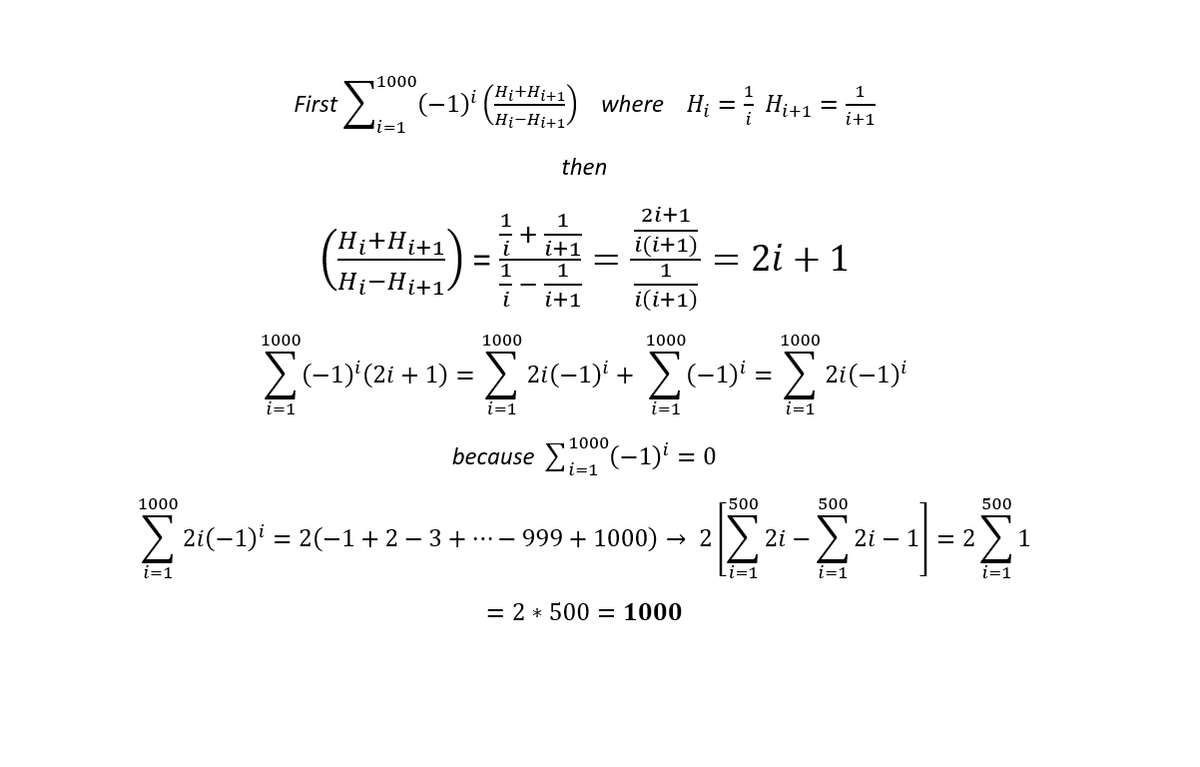No idea about a single term?
i = 1 ∑ 1 0 0 0 ( − 1 ) i ( H i − H i + 1 H i + H i + 1 )
Consider the sequence H 1 , H 2 , … , H n where all H i are in a harmonic progression. Then find the value of the summation above.
The answer is 1000.
This section requires Javascript.
You are seeing this because something didn't load right. We suggest you, (a) try
refreshing the page, (b) enabling javascript if it is disabled on your browser and,
finally, (c)
loading the
non-javascript version of this page
. We're sorry about the hassle.

The general term of an Harmonic progression can be represented as:
H i = a + ( i − 1 ) d 1
where a is the reciprocal of the first term and d is the common difference.
⇒ ( H i − H i + 1 H i + H i + 1 ) = a + ( i − 1 ) d 1 − a + i d 1 a + ( i − 1 ) d 1 + a + i d 1 = ( a + ( i − 1 ) d ) ( a + i d ) d ( a + ( i − 1 ) d ) ( a + i d ) 2 a + 2 i d − d = d 2 a + 2 i d − d
Hence the summation can be represented as:
∑ i = 1 1 0 0 0 ( − 1 ) i × ( d 2 a + 2 i − 1 )
Let each term of the summation be represented as S i
S 2 n − S 2 n − 1 = ( − 1 ) 2 n × ( d 2 a + 4 n − 1 ) − ( − 1 ) 2 n − 1 × ( d 2 a + 4 n − 3 ) = 2
Hence for each pair of such consecutive numbers ( 2n and (2n-1 )) the net sum in the summation is 2 . Since there are 5 0 0 such pairs of numbers from 1 to 1000 ( 1 , 2 ) , ( 3 , 4 ) . . . . . . , ( 9 9 9 , 1 0 0 0 ) the total value of the summation is 5 0 0 × 2 = 1 0 0 0